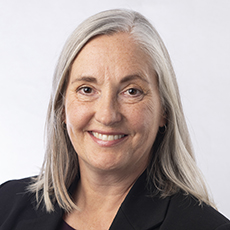UN calls for reprofessionalization of teachers and the teaching profession
In June 2023, United Nations (UN) Secretary-General António Guterres announced the formation of the High-Level Panel on the Teaching Profession. The goal of the panel was to build upon the 2022 UN Summit on Transforming Education, where 130 nations came together to commit to action to meet Sustainable Development Goal (SDG) 4: “ensure inclusive and equitable quality education and promote lifelong learning opportunities for all” by the year 2030. The panel consisted of government ministers of education and labour; teachers; students; teachers’ union representatives; and representatives of civil society, academia and the private sector.
The panel’s report, issued in February 2024, highlights the central role of the teaching profession in the attainment of SDG 4. The 59 recommendations provide clear direction to UN members about how to ensure that SDG 4 is met and sustained. The recommendations are articulated in 10 categories as follows:
Enabling transformation of the teaching profession
These recommendations call on governments to set the stage for the teaching profession to thrive by establishing public services and economic policies that support learners and teachers alike. Governments should work in collaboration with partners in education, including teachers’ unions, to provide multiple learning pathways and opportunities for students. Governments should also enable rights to education as well as decent work for teachers. This includes the right to freedom of association and collective bargaining, as well as freedom of thought and academic freedom. Finally, enabling transformation of the teaching profession includes labour force planning and recruitment, and support for a diverse population of teachers.
Investing in teachers
These recommendations call on governments to spend at least six per cent of gross domestic product and 20 per cent of total government expenditure on public education. Funding should be sustainable, transparent and accounted for using consistent reporting mechanisms. Finally, investing in teachers assumes adequate compensation, affordable preservice training, ongoing professional development and high-quality resources that support teaching and learning.
Promoting equity, diversity and inclusion
These recommendations urge governments, through workforce planning, to recruit marginalized groups into the profession and provide adequate support to them throughout their careers. Further, women and equity-deserving groups should be promoted into leadership positions within the education system. Finally, teachers should have adequate living conditions, including violence-free environments.
Elevating the status and dignity of the teaching profession
These recommendations seek to ensure that all teachers are highly qualified and well respected within their countries and communities. Teachers should be recognized as collaborators in the educational system, and their professional judgment and contributions should be honoured.
Improving quality and fostering innovation in teaching through training and lifelong learning
These recommendations call on governments to ensure that initial teacher education, opportunities for training and lifelong learning are accessible and affordable. In addition, teachers should hold minimum levels of educational training before being certificated. Professional development for school leaders is also essential to successful leadership recruitment. Finally, the recommendations recognize that teaching is a collaborative venture and support the creation of collaborative spaces and time for teachers to come together and plan and evaluate programming.
Ensuring sustainability, peace and democracy
The teaching profession has a role in helping students understand what the global environmental crisis means for their communities as well as the world. The panel calls for professional development and access to free resources to teach youth about topics like environmental sustainability and recommends students become active agents in ensuring a better future for humanity and the earth.
Fostering humanity in teaching through decent work
These recommendations focus on providing decent working conditions, including salary equity with other professions of similar training levels, secure contractual arrangements, adequate support from other education staff for non-teaching tasks, and the establishment of working conditions that support teacher mental health and holistic well-being. Fundamental to these recommendations is the need to meaningfully consult with the teaching profession to design structures such as collective agreements that are responsive and built for the attraction and retention of teachers.
Developing leadership in teaching
These recommendations set out the need for professional development, mentorship and support for teachers who become school leaders.
Advancing human-centred education technology
These recommendations call for the use of technology to be grounded in pedagogical practice, with teachers having the ability to determine how technology is implemented in schools and classrooms. Further, governments and policy makers should collaborate with the profession and with students to ensure equitable access, transparent procurement processes, autonomy in use of technology and evaluation of the how technology is used. “At no point should technology replace the human relationship with the teacher,” the panel writes.
Transforming teaching through a new social contract for education and social dialogue
These recommendations are based on a collaborative model that should be used to inform policy, teachers’ working conditions and student learning. While teachers’ unions, government, school boards and students are identified as partners, their efforts must be coordinated and intentional.
The recommendations call on those unions to take a research-based approach to the profession, including the development of standards of practice as well as implementation and evaluation mechanisms for the standards as they are put into effect.
Next steps for international action
These recommendations tell international actors how to proceed toward 2030 and the achievement of SDG 4. The international community should develop instruments that can be used to track countries’ progress on the recommendations. It should also establish a global fund for teachers’ salaries to be used in times of climate emergencies, war and displacement of populations during crises. At the same time, international banks should forgive debts relating to education and eliminate austerity measures as requirements for debt repayment.
At their heart, the recommendations call for the reprofessionalization of teachers and the teaching profession and recognize and affirm the important role of schools and teachers within communities. These recommendations are relevant both globally and here in Alberta and merit close attention and adoption.

Executive Staff Officer, ATA



